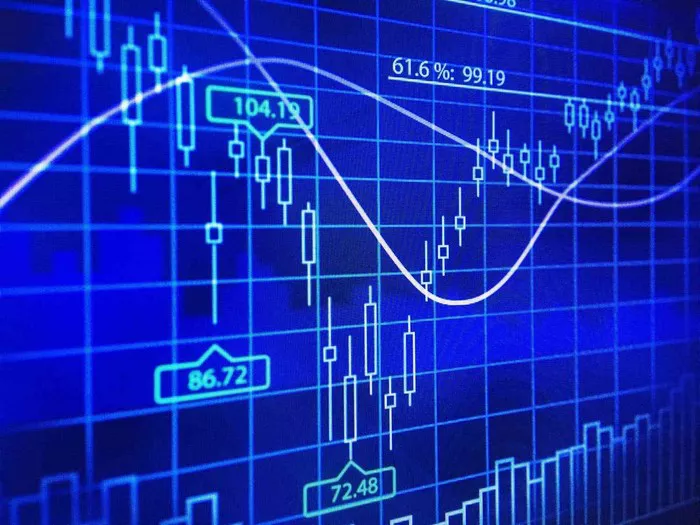Futures contracts are financial instruments that derive their value from an underlying asset, whether it be commodities, financial instruments, or other assets. These contracts are widely used in financial markets to manage risk, speculate on price movements, and achieve portfolio diversification. In this article, we will explore the concept of futures contracts and address the question: Do you have to buy a futures contract?
The Basics of Futures Contracts
Futures contracts are standardized agreements between two parties to buy or sell an asset at a predetermined future date and price. The underlying assets can vary widely, including commodities like gold or oil, financial instruments like stock indices or interest rates, and even cryptocurrencies. The contract specifies the quantity and quality of the asset, and the terms are standardized to facilitate exchange trading.
One key aspect of futures contracts is that they provide an opportunity for market participants to hedge against price fluctuations. For example, a farmer might use a futures contract to lock in a future selling price for their crops, protecting themselves from adverse price movements. On the other hand, speculators might enter into futures contracts to capitalize on anticipated price changes without actually owning the underlying asset.
Understanding Long and Short Positions
When it comes to futures contracts, market participants can take two main positions: long or short. A long position involves buying a futures contract with the expectation that the price of the underlying asset will rise. In contrast, a short position involves selling a futures contract with the anticipation that the asset’s price will fall.
For those looking to capitalize on a potential increase in the price of the underlying asset, taking a long position in futures contracts provides a way to do so without owning the asset outright. Conversely, short positions offer a means to profit from anticipated price declines.
See Also: What time does soybean futures trade?
The Decision to Buy: Is It Mandatory?
Now, let’s address the central question: Do you have to buy a futures contract? The answer is no; buying a futures contract is not mandatory. Market participants have the flexibility to choose whether to enter into a futures contract based on their financial objectives, risk tolerance, and market outlook.
While some investors may choose to buy futures contracts to gain exposure to an asset class or hedge against price fluctuations, others may opt for alternative strategies. For instance, investors can use options contracts to achieve similar objectives without the obligation to buy or sell the underlying asset.
Risk and Reward in Futures Trading
Like any investment, trading futures contracts involves risks and rewards. The leverage inherent in futures trading amplifies both potential gains and losses, making it essential for investors to thoroughly understand the market dynamics and risk management strategies.
When buying a futures contract, an investor commits to purchasing the underlying asset at the agreed-upon price and date. If the asset’s price rises, the investor stands to make a profit. However, if the price falls, losses can accumulate quickly. It’s crucial for market participants to assess their risk tolerance and financial goals before engaging in futures trading.
Alternatives to Buying Futures Contracts
For those hesitant to buy futures contracts outright, there are alternative strategies to consider. One such strategy is selling options contracts. By selling a call option, an investor receives a premium in exchange for agreeing to sell the underlying asset at a predetermined price if the option is exercised. Similarly, selling a put option involves receiving a premium in exchange for agreeing to buy the underlying asset at a specified price if the option is exercised.
These options strategies provide investors with exposure to the market without the obligation to buy or sell the underlying asset. While they come with their own set of risks, they offer flexibility and customization that may better suit certain investors.
The Role of Brokers and Exchanges
To engage in futures trading, market participants typically work through brokerage firms that facilitate transactions on exchanges. These brokers play a crucial role in connecting buyers and sellers, executing trades, and providing necessary information and tools for traders.
Before deciding to buy a futures contract, investors should carefully select a reputable and well-regulated broker. The choice of broker can significantly impact the trading experience, including transaction costs, available resources, and the level of customer support.
Market Analysis and Decision-Making
Whether deciding to buy futures contracts or exploring alternative strategies, market analysis is a fundamental aspect of informed decision-making. Technical and fundamental analysis can provide insights into market trends, potential price movements, and overall market conditions.
Technical analysis involves studying price charts, trends, and indicators to predict future price movements. Fundamental analysis, on the other hand, examines the underlying factors that may influence the value of the asset, such as economic data, geopolitical events, and market sentiment.
Conclusion
In conclusion, the decision to buy a futures contract is not mandatory, and investors have various options to consider based on their financial goals and risk tolerance. Futures contracts offer a versatile tool for managing risk and gaining exposure to different asset classes, but they come with inherent risks that require careful consideration.
Whether choosing to buy futures contracts or exploring alternative strategies like options trading, market participants should conduct thorough research, assess their risk tolerance, and stay informed about market conditions. The world of futures trading offers opportunities for profit, but it demands a disciplined approach and a commitment to ongoing education.


